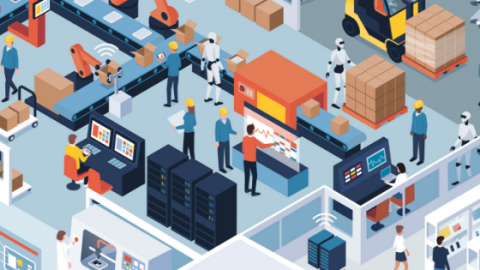
Manufacturers plan to invest more than ever in smart factories but challenges in ccaling must be overcome.
A new study from the Capgemini Research Institute has found that smart factories could add at least $1.5-trillion (€1.36-trillion) to the global economy through productivity gains, improvements in quality and market share, along with customer services. However, two-thirds of this overall value is still to be realised: efficiency by design and operational excellence through closed-loop operations will make equal contributions. According to the new research, China, Germany and Japan are the top three countries in smart factory adoption, closely followed by South Korea, United States and France.
The report entitled, “Smart Factories @ Scale”, identified the two main challenges to scaling up. The first is the IT-OT convergence, which refers to the integration of information technology (IT) systems used for business processes with operational technology (OT) systems that are used to monitor devices, events and industrial processes. The second challenge is the range of skills and capabilities required to drive the transformation including cross-functional capabilities and soft skills in addition to digital talent. The report also highlights how the technology led-disruption, towards an ‘Intelligent Industry’, the digital transformation of industrial and tech companies, is an opportunity for manufacturers striving to find new ways to create business value, optimise their operations and innovate for a sustainable future.
Key findings of the study, which surveyed over 1,000 industrial company executives across 13 countries, include:
Remote monitoring and operation is one of the smart factories’ top potential. The ability to display the operating status of machine components allows factory managers to remotely monitor and diagnose systems as well as identify and resolve problems before they are affected. to the availability of productivity machines and compounds. On the other hand, the cohesion provided by IIoT technologies enables seamless communication between machines, components and people. This connectivity enables the optimization of data processing – increasing efficiency and productivity.
In fact, the application of the smart factory model has become a parallel trend with the explosion of Industry 4.0.
Source: Industry Europe